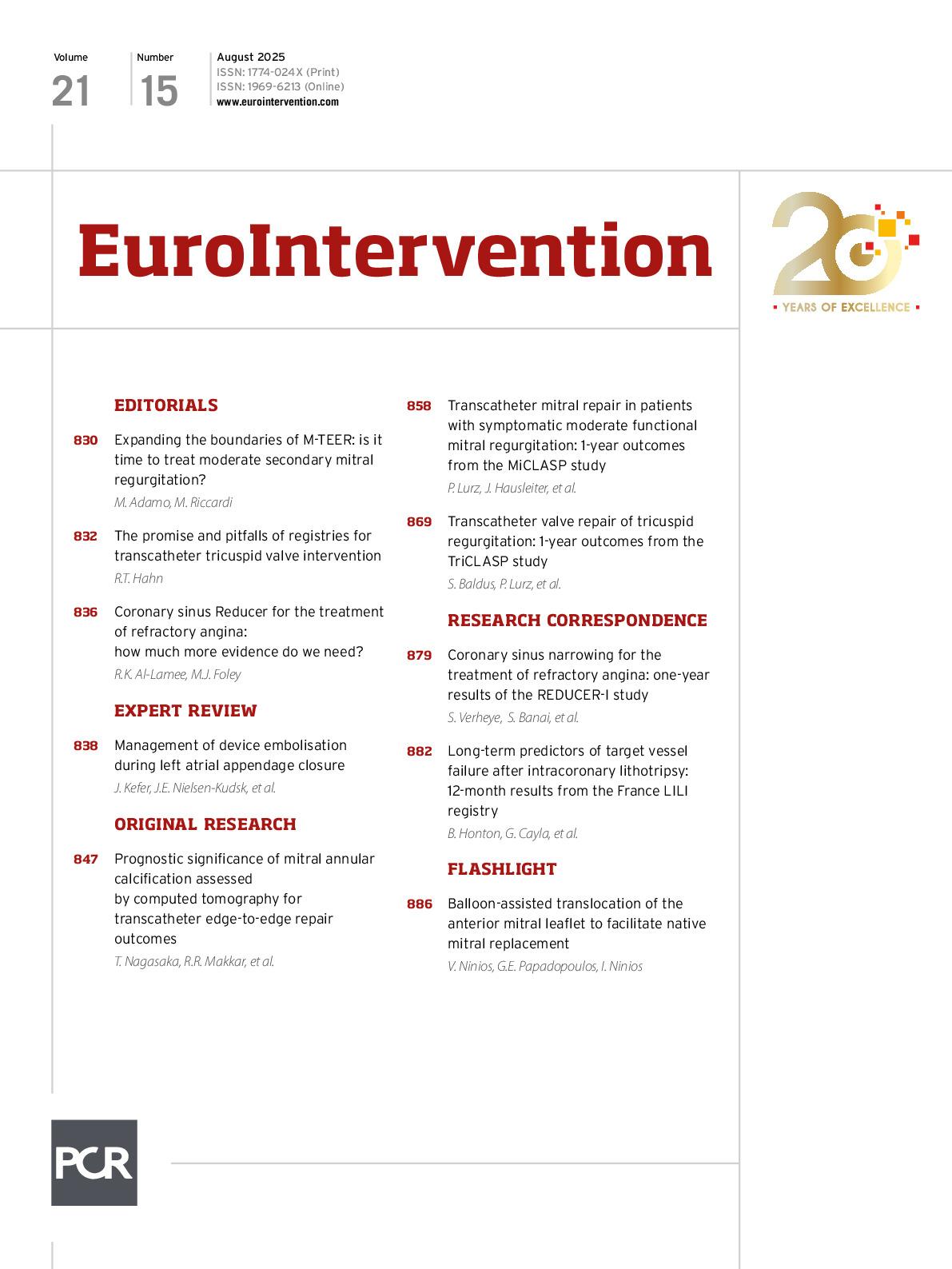Abstract
Background: Current clinical guidelines do not recommend mitral transcatheter edge-to-edge repair (M-TEER) for patients with moderate functional mitral regurgitation (FMR), and the implications of M-TEER in this population are not well documented.
Aims: We aimed to assess M-TEER outcomes in patients with symptomatic moderate FMR compared to those with FMR ≥3+ who were treated with the PASCAL system in the MiCLASP study.
Methods: Patients were stratified by baseline FMR grade (2+ or ≥3+). The echocardiographic core laboratory-assessed mitral regurgitation (MR) reduction, clinical events committee-adjudicated major adverse events (MAE) rate and functional and quality-of-life outcomes were evaluated up to 1 year after M-TEER.
Results: Of the 544 (FMR=322; degenerative MR=163; mixed/other=59) enrolled patients, 101 had baseline FMR 2+ and 197 FMR ≥3+. Both groups achieved significant MR reduction at discharge, which was sustained up to 1 year, with 89.8% of patients achieving MR ≤1+ in the FMR 2+ group and 77.8% in the FMR ≥3+ group (all p<0.001 vs baseline). At 1 year, significant improvements (all p<0.001 vs baseline) in functional capacity (New York Heart Association Class I/II: 67.1% FMR 2+; 70.1% FMR ≥3+) and quality of life (change in the Kansas City Cardiomyopathy Questionnaire overall score: +13.9 points FMR 2+; +13.9 points FMR ≥3+) were achieved in both groups, with high survival (90.0% FMR 2+; 84.2% FMR ≥3+; p=0.176) and low MAE rates (13.9% FMR 2+; 18.3% FMR ≥3+; p=0.413).
Conclusions: In the MiCLASP study, patients with moderate FMR experienced significant MR reduction at 1 year, resulting in clinical and symptomatic benefits comparable to those with ≥moderate-severe FMR, suggesting that select patients with symptomatic moderate FMR can benefit from M-TEER.
Sign up for free!
Join us for free and access thousands of articles from EuroIntervention, as well as presentations, videos, cases from PCRonline.com

